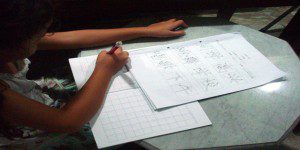My experience with computer technology was not during childhood.
Technology to me was modern home appliances which was the washing machine, television and telephone. I used the computer only in school,which started when I was about 19 years old.
My first wireless device was a beeper or pager that I carried with me in my early 20s. It was my first job as a writer for a Hong Kong computer magazine. My pager and a Motorola handphone were two very important communication devices at that time. There were only 3 ways that made communication trendy for me, the pager, mobile phones and of course the emails. The pager was the one thing that made me look geared up for the working world. Even namecards bore the pager number as a contact detail. I was the executive. lol! And so I thought.
I remember speaking to a repairman about my Toshiba laptop. He suggested that I got rid of it as it would become obsolete in no time. He waved his hand out as he said this, stressing his message even more. From that day onwards, I just kept hearing more and more news about upgrades, replacements, upgrades and improvements. Pause. These words which I just mentioned are about progression and improvement. Who doesn’t want the trendiest and state of the art kind of technology in their hands? Going around talking about the newest and latest says a lot about my knowledge about IT, especially in my job.
Technology did not actually come into our lives till the late 70s and early 80s. So I actually had the opportunity to use my hands to do many things. Mum used a granite stone and a roller to grind or blend chillies. She would sit down for hours in the kitchen preparing ingredients. Dad would cook durian cakes in a big brass pot over charcoal fuel. Everything we ate would have gone through a hands-on process from my beloved parents, including chopping onions and doing the laundry. Food always tasted better and our clothing lasted forever.
A few years after my father died, we moved to a bigger apartment. The family soon had more electrical home appliances. I bought a Phillips vacuum cleaner for S$400/- which still works. We had a rice cooker, an oven, a water heater unit, an electric egg beater, a blender and many other modern stuff like colour television, dvd players etc. We bought into the concept of a better way of life with machines. Well they did but not for very long. The dust kept coming, so after vacuuming the floor, I kept having to mop the floors with my bare hands. The mop. It is the only thing that has not been replaced by a machine in my house. The washing machine was noisy too. So was the blender and egg beater. You just couldn’t have complete silence in the house for just one day. There was heat and noise pollution generated from using electricity. Not to mention higher utility bills.
I did not have a computer during my childhood.
But I must admit that the life we lived then was a valuable experience. I am only able to teach kids practical life skills the way it should be taught because I did not have a computer. I learn very quickly that pushing buttons and touching screens cannot help children grow smarter or more skillful. When I saw how quickly my daughter was amazed by the television and remote control, I knew she had not learnt how things actually work. Learning has not taken place. It was like watching an illusionist doing a disappearing act before your very eyes. Simply being amazed and dazzled by magic does not make you understand how the trick works. For the illusionist, he will not want to tell his trade secrets or he will risk losing his profession. As with technology, we are complete dummies whilst the computer is intelligent, albeit artificial.
Change is inevitable. Schools, even at the pre-school levels, encourage the use of computers in classrooms. Students seem to understand you better in class when you tell them to press the red button to take them to page 34, instead of saying ‘turn to page 34, paragraph 33, line 3.’
Nevertheless, I am still hesitant to embrace technology.
1. Examinations are based on the books you have studied, computer devices are tools
Information obtained from browsing the internet is only meant for the purpose of research, which forms general knowledge for students. Examinations are still based on handwritten work. Textbooks are used as references in classrooms. Any computer device will be used are mere tools for learning.
2. Reading becomes less important because the computer does the walking and reading
As information is available on demand from the computer, there is no need to flip through pages after pages to read and discover knowledge.
The hands are the intelligence of the mind is my all-time favourite quote from Maria Montessori.
It is true. If the hands are not put to good use (other than clicking for information), no muscular memory is performed. Besides it is even easier to ignore the importance of spelling correctly because of automatic spell check feature in the software.
3. Information (Technology ) overload.
I call it IOD, information overload disorder. Not long after the computers were invented, the worldwide web was created. The internet is not the ideal place or thing to gain knowledge about how things work. Quite often, very little knowledge is created because research is confined to click and browse for relevant information only. There is no need to take notes with a pen and a piece of paper. Cut, copy, paste and print. Thus, it is easy for a student to be overloaded with information. When this happens, the student is apt to skip a few steps in the studying process in order to complete his assignments.
4. If parents pay for the bills, why should our children come for the ride and enjoy the benefits?
Parents have the right to decide when and how to share computer devices. The privilege can only go so far. The school needs our kids to know how to use the computer so they can have e-learning activities. Personally, I do not practise checking through my daughter’s mobile devices. She has been very responsible in this regard. What I am struggling with is the songs, movies and videos that are commonly available online. We have experienced many occasions where we had to call our mobile provider to clarify the bill, only to learn later that we had exceeded the limit of internet downloads for that month. We can’t monitor everything we use, can we?
5. Technology is inexpensive these days
A damaged mobile phone can be sold for S$10/- to the ‘karang guni man’ or the independent ‘mobile cash converters’. The iPad first generation series can be sold for for S$40/-. Many of my personal devices go down in value within 3 years. These prices are indicative of just how lucrative the business of computers is in Singapore. The second hand mobile phones and tablets business are as busy as the pawn shops.
So there is no running away from reality of computer, information or communication technology. Like it or not, we all have to make lifestyle changes because of computer technology. Samsung’s new Galaxy S5 and Gear drive the message home, literally. There is going to be iPhone 6 soon too. n the wake of these rapid changes, it is important for parents to remain steadfast as individuals who are responsible caregivers of their young. Kids don’t know how much they can miss out on playing if we expose them to technology too soon.
How Can Parents Help?
Learn to say ‘no’ to:
- Surfing the net on the mobile phones and tablets before bedtime
- Playing online games at dinner table
- Giving the child the tablet or mobile phone while travelling or simply window shopping
- Late nights
- Using the headphones
- Passing down unused or spare handphones to the child ( it is not clothing, they can’t wear them.)
- Sitting in front of the television and surfing the net on the mobile phone at the same time.
- Doing all the above if the kids are watching us

Read and write in silence, how one begins to find focus and concentration. No computers allowed here.
Say yes to:
- Reading physical books
- Listening to classical or instrumental songs
- Playing board games
- Eating together at the table minus the mobile devices
- Early bedtimes
- Outdoor activities
- Painting, writing and creative activities
- Cooking and baking at home
- Ironing, folding of clothes
- Washing dishes
- Cleaning the house
Make up your own list of activities that can take you away from the computer as much as possible in single day. Do use the computer and modern electrical appliances if you know that these will free up some time for you to spend with your kids. Lifestyle changes have to benefit you and your child. Just like learning about your child in the growing up years, these activities need to be adjusted regularly to meet the purpose of your goal, which is to spend more time with your child doing things without the computer.


